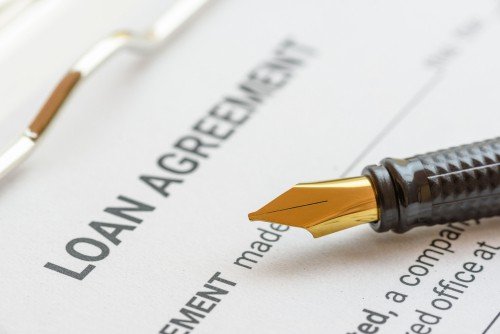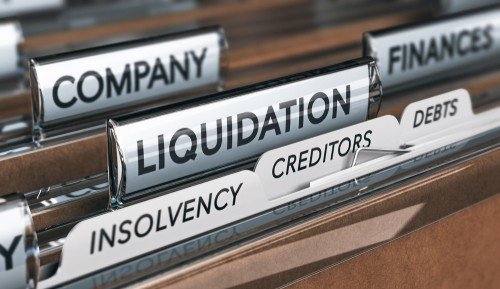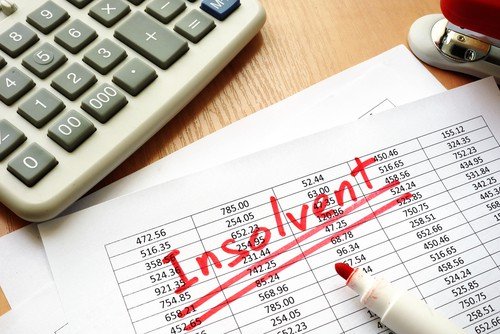Always inform your contractor in writing that they are at risk of breach of contract. File a complaint with your local state licensing board. When a contractor receives enough complaints, the board can choose to publish this info. You can attempt to resolve any issues by opting for arbitration or mediation.
Does owning a construction company make money?
The Average Salary of a Construction Company Owner
A small construction company owner with just a handful of employees might earn anywhere from $50,000 to $100,000 per year, while the owner of a larger construction company can make millions of dollars per year.What to do if your builder makes a mistake?
Do not send letters to lawyers, government agencies, home builders associations or any other third parties before you have given your builder a reasonable chance to correct the problem. Interference from outsiders may impede the handling of your complaint.
Does a contractor keep leftover material?
What should you not say to a contractor?
- 'I'm not in a hurry'
- 'I know a great roofer/electrician/cabinet installer!
- 'We had no idea this would be so expensive'
- 'Why can't you work during the thunderstorm/snow/heat wave?
- 'I'll buy my own materials'
- 'I can't pay you today.
- 'I'll pay upfront'
- 'I'm old school.
Who is liable if a company Cannot pay its debts?
If the corporation or LLC cannot pay its debts, creditors can normally only go after the assets owned by the company and not the personal assets of the owners. However, the business owner can also be held responsible for corporate or LLC debts in certain situations.




The cover up operations went like this. ECRL and gas pipeline projects were inflated by RM30 billion. Then CCCC made arrangements to flow the kickbacks to Kuwaiti Sheikh, Kuwaiti Sheikh used the money to pay IPIC, which used the money to settle 1MDB debts.
— FreeMalaysian (@FreeMsian) April 1, 2023
What are the consequences for the owner if the business is unable to pay its debts and liabilities?
Personal Liability
If your business fails, you cannot walk away from the debt obligations. The lenders can hold you personally liable for the debts and will pursue you vigorously if you have any assets to speak of. Or take, for instance, if your business gets sued and the lawsuit is successful.
Frequently Asked Questions
Can you be personally liable for company debts?
How much debt is worth filing bankruptcy?
What are reasons companies file for bankruptcy?
There are many theories about the root causes of insolvency, business failure, and business bankruptcy, but most theories boil down to three: poor management, poor marketing, and poor financial practices.
What percentage of construction companies fail?
Why do so many construction companies fail? According to the US Department of Commerce, construction and contracting businesses have the highest failure rate of any other business. Up to 96% of these companies fail before reaching 10 years in business.
How many companies have filed bankruptcy in 2023?
S&P Global Market Intelligence recorded 459 bankruptcy filings in 2023 as of Aug. 31, more than the full-year totals for 2021 and 2022. The year-to-date figure is also higher than the comparable total for all but two of the prior 13 years. Fifty-seven companies sought bankruptcy protection in August.
FAQ
- How many companies go bankruptcies a year?
Bankruptcy Filings Rise 10 Percent
Year Business Total 2022 12,748 380,634 2021 18,511 462,309 2020 22,482 682,363 2019 22,483 773,361 - What business has the highest failure rate?
The industries with the highest failure rates are the construction, transportation, and warehousing industries where 30%-40% of businesses fail within their fifth year.
- Who filed for bankruptcy in 2008?
Lehman Brothers
Lehman Brothers was forced to file for bankruptcy in September 2008. Its failure had lasting negative effects on global markets and became a symbol of the chaos of the financial crisis of 2007–08.- When did bankruptcy begin?
1800
In the United States, early federal bankruptcy laws were temporary responses to bad economic conditions: The first official bankruptcy law was enacted in 1800 in response to land speculation and promptly repealed in 1803. In response to the panic of 1837, a second bankruptcy law was passed in 1841.
- Did Katerra go out of business?
- In June 2021 Katerra filed for bankruptcy, blaming the COVID-19 pandemic as well as an inability to raise new capital following the collapse of its lender, Greensill Capital.
What happens if a construction company cannot pay its debts
| What was the Bankruptcy Act of 1800? | The Bankruptcy Act of 1800 was the first piece of federal legislation in the United States surrounding bankruptcy. The act was passed in response to a decade of periodic financial crises and commercial failures. It was modeled after English practice. |
| What companies failed in the 2008 crisis? | For those keeping tabs, the total assets of the major financial institutions in 2008 that collapsed or were saved with public support—Bear Stearns, Lehman Brothers, AIG, Washington Mutual, Citigroup—were $4.5 trillion at the time. Freddie and Fannie add a further $1.8 trillion. |
| What happens when small business files bankruptcy? | In a business Chapter 7 bankruptcy, the business is closed, all assets are liquidated by the bankruptcy trustee, and the proceeds from the business assets are paid out to the business's creditors. |
| What is the #1 reason for bankruptcies? | Job loss, medical expenses, and escalating mortgage payments are among the common reasons people file for bankruptcy. Overspending can also contribute to a situation that forces someone to file for bankruptcy. |
| What happens if a company goes bankrupt and owes you money? | If the company owes you wages, you will be considered a creditor of the bankrupt company. The bankruptcy laws line up (“prioritize”) creditors in the order in which they will be paid off. Creditors who are owed wages, salaries, or commissions are given a high priority for repayment. |
- What happens to lawsuits when a company goes bankrupt?
If you hope to continue the lawsuit while the company is in bankruptcy, you'll have to request relief from the automatic stay with the bankruptcy court by filing a motion to lift it. The bankruptcy court may or may not grant this motion. In many cases, the judge won't lift the stay.
- How do creditors get paid after bankruptcies?
Creditors in bankruptcy cases have debts paid either by waiting for a distribution from the estate (unsecured creditors), by reclaiming property from the bankruptcy estate (secured creditors), or by obtaining a judgment that the debt is not dischargeable.
- When a company goes bankrupt who gets paid last?
The last group to receive payment when a company goes into liquidation are the shareholders. Since shareholders have taken a business risk in lending funds to the company, they have no entitlement to distribution till all other group of creditors have received payment.
- What happens if a big company goes bankrupt?
Chapter 7. Under Chapter 7 of the U.S. Bankruptcy Code, "the company stops all operations and goes completely out of business. A trustee is appointed to liquidate (sell) the company's assets, and the money is used to pay off debt," the U.S. Securities and Exchange Commission notes.
